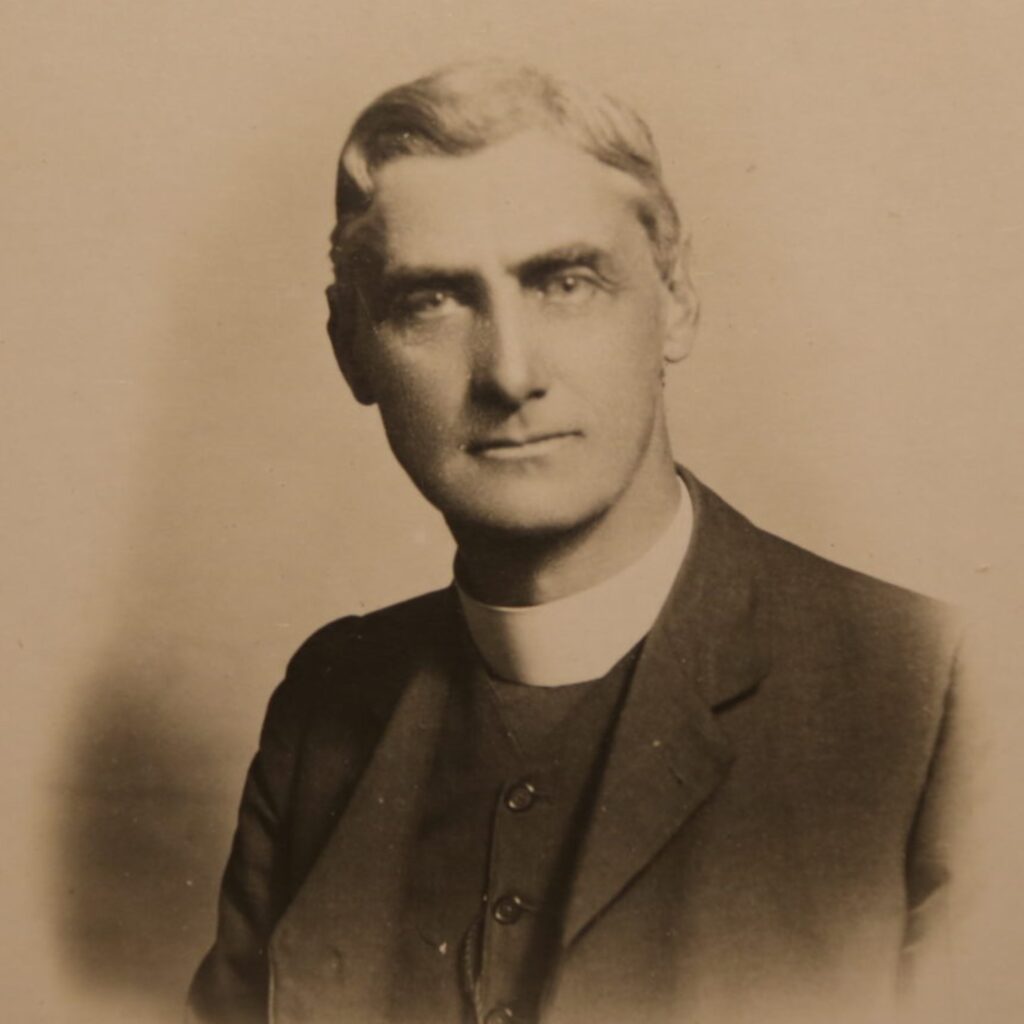Roland Allen (1868-1947) had a short and not very effective missionary career in China. It was his writings after that which made him a critical voice in cross-cultural thinking.
In 1895 he was sent by the Society for the Propagation of the Gospel (SPG) to its North China Mission. Allen spent two periods in Northern China. The first, from 1895 to 1900, was ended by the Boxer Rebellion, during which time Allen was forced to flee to the British Legation in Beijing. He was a chaplain to the community throughout much of the siege. After that, there followed a period back in England, in which time he married and then returned to North China in 1902. But after a short period of time he was forced home to England due to illness.
For the rest of his life Allen became a prophet on the topic of cross-cultural mission. Allen was ahead of his time in his missiological views – and it did not help that “his personality managed to alienate most colleagues with whom he came in contact.” “Allen strove to change drastically the entire colonial and paternalistic system of missionary governance as a leading missionary theorist and a controversial, prophetic challenger of the existing order.” Although Allen’s ideas had little effect on the churches and missionary societies of his day, yet “as he himself predicted, his work was rediscovered (in the 1960s) and has exercised a growing influence on missiology and ecclesiology in many places.”
His early missionary experiences led him to a radical reassessment of his vocation and the theology and missionary methods of the Western churches. Allen’s approach to mission strategy for indigenous churches was based on the study of Saint Paul’s missionary methods, as he was convinced that he found in them the Biblical way to conduct cross-cultural mission.
1. He believed that the churches which missionaries planted should become a local entity and not merely imitations of Western Christianity. He wanted the forms of the church to be adapted to local cultural conditions. “If the Church is to be indigenous, it must spring up in the soil from the very first seeds planted.
2. Missionaries should “trust in the Holy Spirit’s indwelling within the converts and churches”, a method that was “the mark of Paul’s success”. Allen argued that “the people of his day were unable to entrust their converts to the Holy Spirit” and instead relied on God working through the missionaries, not the local believers. “Allen became an early advocate of establishing Churches that from the beginning would be self-supporting, self-propagating, and self-governing. To accomplish this, missionaries would have to hand over responsibility to the local leaders in the community.”
“St. Paul’s churches were indigenous churches in the proper sense of the word; and I believe that the secret of their foundation lay in his recognition of the church as a local church (as opposed to our ‘national churches’) and in Paul’s profound belief and trust in the Holy Spirit indwelling his converts and the churches of which they were members, which enabled him to establish them at once with full authority.” “Spontaneous expansion must be free: it cannot be under our control; and consequently, it is utterly vain to say, as I constantly hear men say, that we desire to see spontaneous expansion, and yet must maintain our control. If we want to see spontaneous expansion we must establish native Churches free from our control.”
Allen thus “criticised missionaries for their paternalistic and protective attitudes and their failure to trust in the Holy Spirit to guide the new church in its development. Drawing on 1 Peter 4:10, he argued that priesthood belonged inherently to all Christians.”
Indigenous peoples should thus be given control of their own churches – including control of finances – and responsibility for supporting their own churches. “The continued presence of a foreigner seems to me to produce an evil effect. The native genius is cramped by his presence and cannot work with him. The local Christians thus tend to sit still and let the missionary do everything for them, denying all responsibility… Long continued residence by the missionary stifles the local church.”
What a wonderful view of missionary work this is. Consider this statement by Allen: ”The preacher should believe that he is sent to those whom he is addressing, because God has among them those whom God is at the moment calling; it requires that the speaker should expect a response.” So the missionary, as I have often said, is determined to work himself/herself out of a job and to hand over the church to those “among them whom God is at the moment calling.” To be honest, that is not just relevant to Western churches, it applies just as much to Asian or African missionaries! Roland Allen, speak to us again today!



